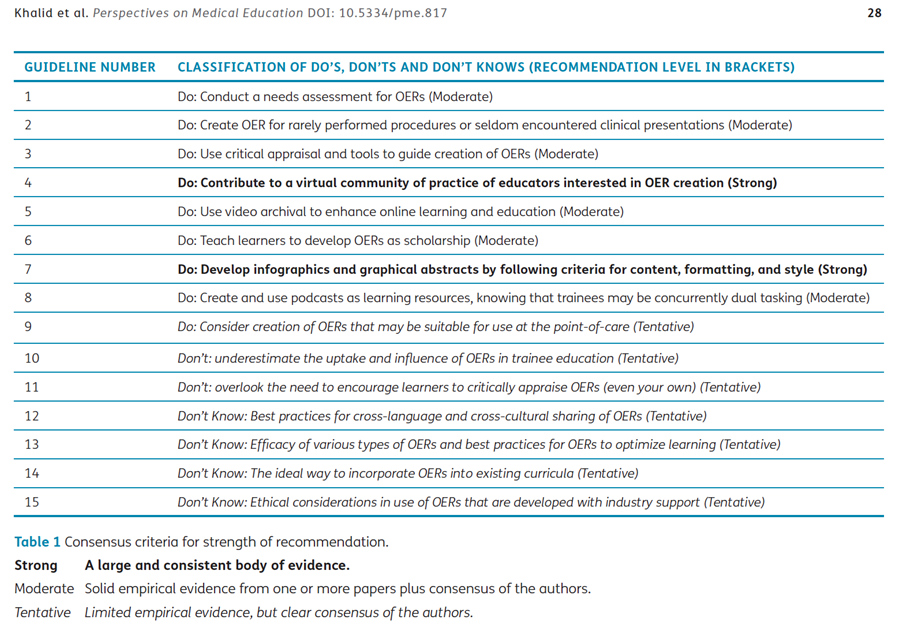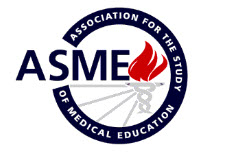#35 – “I heard it on a podcast… “: Best practices for developing quality open access education resources.

Episode Host:
Jonathan Sherbino
Episode article
Khalid, F., Wu, M., Ting, D. K., Thoma, B., Haas, M. R. C., Brenner, M. J., Yilmaz, Y., Kim, Y. M., & Chan, T. M. (2023). Guidelines: The Do’s, Don’ts and Don’t Knows of Creating Open Educational Resources. Perspectives on medical education, 12(1), 25–40. https://doi.org/10.5334/pme.817
Enjoy listening to us at your preferred podcast player.
Open access on-line education resources are the fast growing segment of educational tools. As this grassroots phenomenon approaches metaphorical middle age, what are the best practices for the development and implementation of blogs, podcasts, inforgraphics etc. This episode helps synthesize the evidence for developers.
Episode notes
Background
Do you recall the educational technologies that supplemented your health professional training? My “favourite anecdote” is studying for my Royal College exams using a portable CD player (such cutting edge tech!), while simultaneously reviewing a coffee table-ish atlas of dermatology. Despite what Mayer says, you can’t use aural and visual working memory channels, in parallel, if you are studying separate content!
In the last decade open educational resources (OERs) (typically digital, no-cost, resources, distributed for use, redistribution, or adaption, e.g., blogs, podcasts, infographics etc.) have exploded. The low (zero) barriers to distribution have allowed a democratization of education. Of course, there are challenges. Issues of quality, comprehensiveness, renewal and more threaten OERs. Of course the same critiques, can be leveled against traditional textbooks, review articles and formalized curricula.
So what can we (particularly the PAPERS Podcast hosts) learn about best practices for OERs. Enter Khalid et al.
Purpose
“We enlisted medical education experts to curate the available evidence with the goal of defining best practices in the creation of OERs in medical education.”
Methods
A rapid review was conducted. The search involved four steps.
- Citations from a previous publication on OER evaluation tools were sourced.
- Authorship team added additional references.
- MEDLINE, EMBASE and Cochrane were searched 2010-2020 using the 2 keywords “open educational resources” and “OER”.
- Hand search of reference list of all included studies.
Authors identified and categorized key take home points, in an iterative fashion. The process was not described.
The guidelines were graded using the Perspectives on Medical Education framework.
Results/Findings
81 articles were included.

Conclusions
From the authors: “This article culminates key evidence into a guideline for the creation of OERs. We hope that the field will continue to evolve its practices by addressing the Don’t Knows, bringing further clarity to the Do’s and Don’ts of the field.”
Paperclips
A rapid review is a type of synthesis that accelerates traditional systematic review methodology by streamlining or omitting specific steps in the methods (e.g. restricted search, limited quality assessement) to produce evidence in a resource-efficient manner.
Shout out to the first and second authors who were medical students at the time of publication.
References mentioned in the epsode
Chou, C. L., Kalet, A., Costa, M. J., Cleland, J., & Winston, K. (2019). Guidelines: The dos, don’ts and don’t knows of remediation in medical education. Perspectives on Medical Education, 8(6), 322–338. https://doi.org/10.1007/s40037-019-00544-5



0 comments